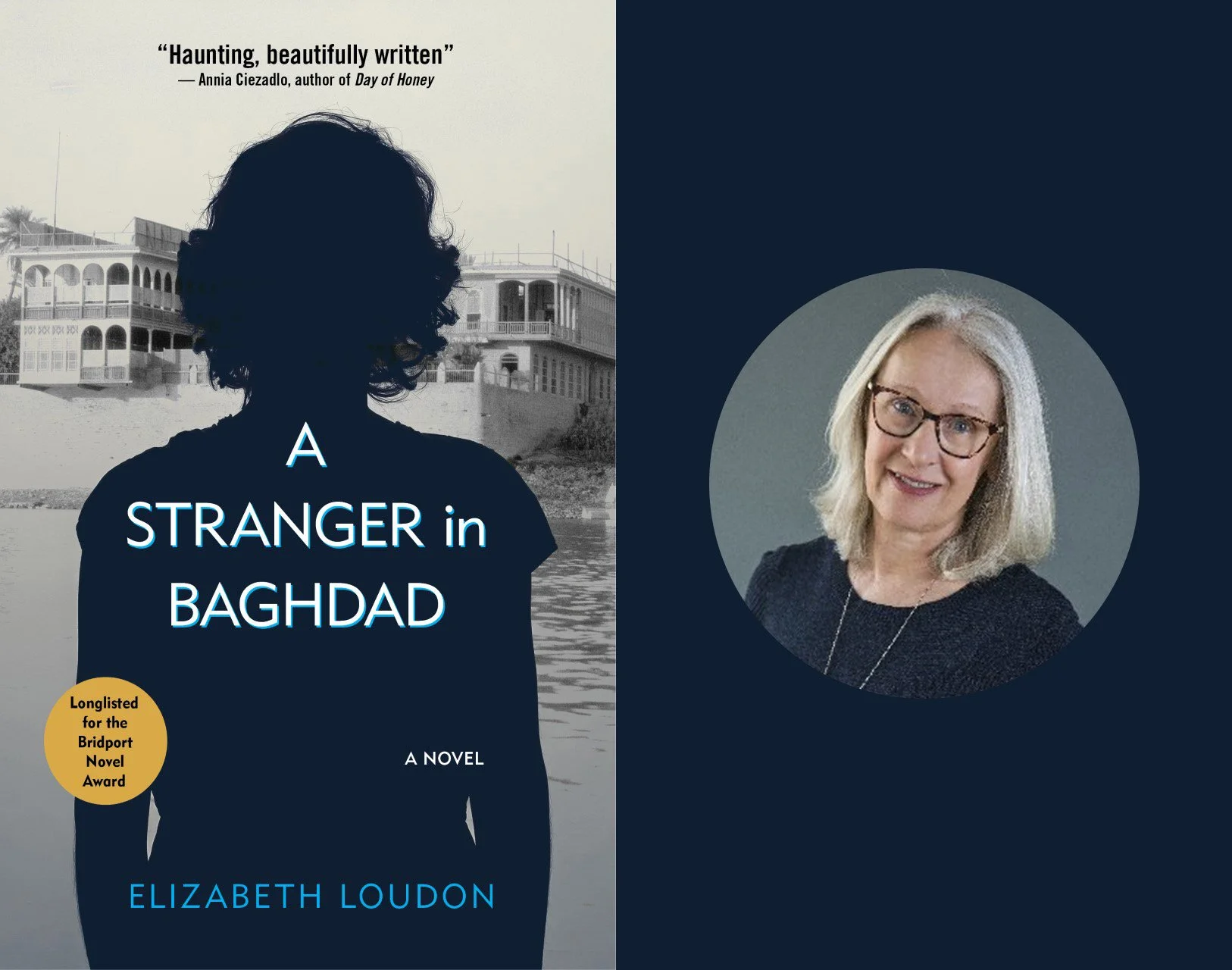A STRANGER IN BAGHDAD
By Elizabeth Loudon
This novel sets the scene with an immigrant doctor in London being visited by a mysterious stranger from her past. We discover that the doctor is an Arabic-speaking psychiatrist who chose medicine for the mind rather than for the body on a whim relating to a friend in Baghdad. The mysterious stranger arriving in her office is Duncan Claybourne, who is to play a significant role in the novel. From this moment, we realise that A Stranger in Baghdad will touch on immigration- both to London and to Baghdad - that there will be revelations from the past, and that both our heroine and her mother will reveal rich and complex lives. Loudon deftly introduces all these characters within the first few pages and has the reader fully invested in the chapters that unfold. Told from multiple perspectives, the narrative is subtle, rich and multi-layered, building up a world that is completely alive and replete with detail, while also creating a page-turning, well-paced read.
We are transported back to 1937, when Diane, a lively Englishwoman is drawn to the ambitious Iraqi doctor, Ibrahim, and she marries him despite the antagonism from both sides of the cultural and racial gulf. Diane finds work as a nanny for the Iraqi royal family, and she meets Duncan Claybourne, a young British Embassy officer in Baghdad who we realize is the very same as the old man visiting older Mona Haddad – daughter of Diane -at the start of the book. Claybourne and Diane become friends, but when the Iraqi King dies in a mysterious accident, Ibrahim and his family suspect Diane of colluding with Duncan and the British in a complex assassination plot, bringing all of their lives under threat.
Loudon conveys the slow disintegration of ordinary life as the Iraqi monarchy is abolished during the late fifties, and a harsh dictatorship sends ripples of pain throughout the society of both Iraqis and ex-pats. One of the great strengths of the book is the telling of the story of Iraq before its more recent past from 2003 onwards when invaded by the US and the UK, giving readers context and a true sense of history that provides great insight into Iraqi society from the 1930s onwards. The role of Britain in the war is embodied by Duncan Claybourne who represents the Foreign Office and British attitudes. His true feelings are only discovered at the very end of the book.
“I’ve been afraid too, of djinns in the smoke as well as bullets in the head”, says Mona Haddad, daughter of Diane, whose voice is one of the key narrators of the novel.
The djinns in the smoke are less obvious than the possible bullets in the head — in this story that weaves a web of deceit, desire and despair. A missing younger brother adds to the fascinating history of this multi-racial tale; secrets are created and unearthed, strands of the story are frayed and re-woven, all adding up to a gripping, revealing and deeply satisfying novel.
Ella Berthoud
August 2023
My thanks to Anne Cater of Random Things Tours for the invite to the blog tour and for supplying the book.
@RandomTTours
